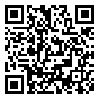Volume 9, Issue 2 (2022 2022)
JRH 2022, 9(2): 15-23 |
Back to browse issues page
Download citation:
BibTeX | RIS | EndNote | Medlars | ProCite | Reference Manager | RefWorks
Send citation to:



BibTeX | RIS | EndNote | Medlars | ProCite | Reference Manager | RefWorks
Send citation to:
Mahmoudi A, Mousavi S K, Kamali M, Azizkhani H. Relationship between religious beliefs and self-management behaviors in patients with kidney transplantation. JRH 2022; 9 (2) :15-23
URL: http://jrh.mazums.ac.ir/article-1-946-en.html
URL: http://jrh.mazums.ac.ir/article-1-946-en.html
Instructor, Faculty Member of Zanjan University of Medical Sciences, Ph.D. Candidate of Nursing, Shahid Beheshti School of Nursing and Midwifery, Guilan University of Medical Sciences, Rasht, Iran.
Abstract: (3698 Views)
Background and Purpose: Every year, a large number of patients with chronic renal failure undergo kidney transplantation in the hope of getting rid of dialysis problems and improving their quality of life. Nonetheless, the post-transplant treatment process in these patients is long, complicated, and requires strengthening self-management behaviors to manage the disease process. In our culture, religious beliefs hold a prominent place, affecting people's daily actions and behaviors. The present study aimed to assess the relationship between religious beliefs and self-management behaviors in patients with kidney transplantation.
Materials and Methods: In this cross-sectional descriptive-correlational study, 117 patients with kidney transplantation referred to the Tehran Kidney Patients Support Association in 2017 were selected by convenience sampling method. Data collection tools included demographic characteristics form, Glock and Stark's questionnaire of religious beliefs, and Kozaka’s self-management behavior scale that were completed by the self-report method. The obtained data were analyzed in SPSS software (version 20) using descriptive statistics (frequency, frequency percentage, mean and standard deviation) and inferential statistics (Pearson correlation test).
Results: Regarding age, 50.4% of participants were within the age range of 31-50 years, and more than half of them had undergone a kidney transplant in the last five years. The mean score of participants’ religious beliefs was obtained at 64.07, and 68% of them had moderate religious beliefs. The mean score of patients' self-management behaviors was 66.87, and most of them (61.5%) had a high level of self-management. In general, there was a statistically significant correlation between religious beliefs and self-management (P= 0.046).
Conclusion: As evidenced by the results of the present study, there is a direct relationship between religious beliefs and self-management behaviors in patients with kidney transplantation. Therefore, it is suggested that the role of religious beliefs be highlighted in the educational programs of these patients, and necessary planning be done to strengthen this factor.
Materials and Methods: In this cross-sectional descriptive-correlational study, 117 patients with kidney transplantation referred to the Tehran Kidney Patients Support Association in 2017 were selected by convenience sampling method. Data collection tools included demographic characteristics form, Glock and Stark's questionnaire of religious beliefs, and Kozaka’s self-management behavior scale that were completed by the self-report method. The obtained data were analyzed in SPSS software (version 20) using descriptive statistics (frequency, frequency percentage, mean and standard deviation) and inferential statistics (Pearson correlation test).
Results: Regarding age, 50.4% of participants were within the age range of 31-50 years, and more than half of them had undergone a kidney transplant in the last five years. The mean score of participants’ religious beliefs was obtained at 64.07, and 68% of them had moderate religious beliefs. The mean score of patients' self-management behaviors was 66.87, and most of them (61.5%) had a high level of self-management. In general, there was a statistically significant correlation between religious beliefs and self-management (P= 0.046).
Conclusion: As evidenced by the results of the present study, there is a direct relationship between religious beliefs and self-management behaviors in patients with kidney transplantation. Therefore, it is suggested that the role of religious beliefs be highlighted in the educational programs of these patients, and necessary planning be done to strengthen this factor.
Type of Study: Review |
Subject:
Sciences of Quran & Hadith
Send email to the article author
| Rights and permissions | |
 |
This work is licensed under a Creative Commons Attribution-NonCommercial 4.0 International License. |






